What To Do if Your Baby Plays with Food with @kid.food.explorers Dani Lebovitz, MS, RDN
- Why babies play with and drop and throw food…and how to react when they do
- How to use food based education to help your baby become an adventurous eater
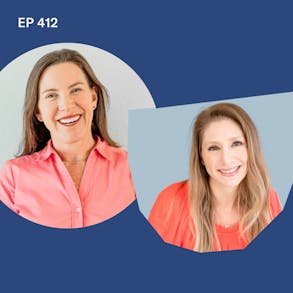
LISTEN TO THIS EPISODE
Episode Description
How do you stop your baby from playing with food or throwing food on the floor? Dietitian Dani Lebovitz from @kid.food.explorers joins me to discuss raising adventurous eaters…and why letting your baby drop food on the floor is actually a good thing!
About the Guest
- Arielle “Dani” Lebovitz is a Registered Dietitian Nutritionist and founder of Kid Food Explorers
- She is a children’s book author and empowers families to be confident, adventurous eaters
- Dani has created a unique food-based nutrition education curriculum to foster food competence
Links from this Episode
Check out Dani from @kid.food.explorers books (these are affiliate links):
- Becoming a Food Explorer https://amzn.to/3TahFFM
- Fun with Food https://amzn.to/3cQKOCa
- Where does broccoli come from?https://amzn.to/3FfjJo1
- Where do bananas from from? https://amzn.to/3E6150s
- 101 Descriptive Words for Food https://amzn.to/3dUw5FN
- Let’s Play with Our Food Activity Book https://amzn.to/3ykPefM
- Baby-Led Weaning with Katie Ferraro program with the 100 First Foods™ Daily Meal Plan, join here: https://babyledweaning.co/program
- Baby-Led Weaning for Beginners free online workshop with 100 First Foods™ list to all attendees, register here: https://babyledweaning.co/baby-led-weaning-for-beginners
Other Episode Related to this Topic
- Episode 73 - HELP! My Baby Has NO Interest in Food at First
- Episode 358 - My Baby is Dropping Food: What Do I Do?

Latest Episodes

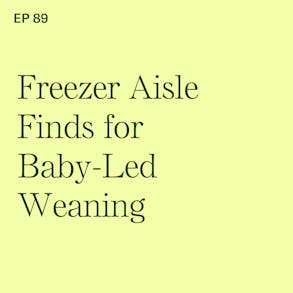
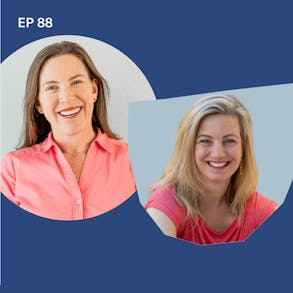
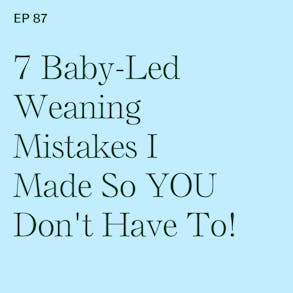
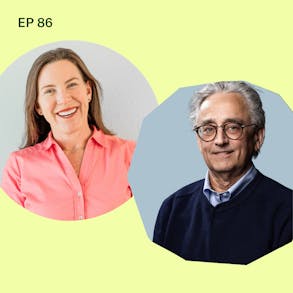
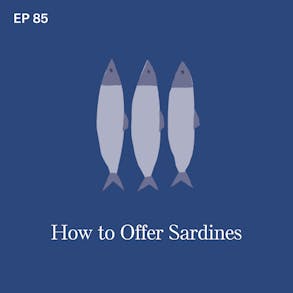
Whole Foods Market (0s):
Taste the Mediterranean through March 19th at Whole Foods Market. Save on animal welfare, certified bone and beef short ribs, sustainable wild caught sockeye salmon and more. Find sales on Parmigiano Reggiano, charcuterie and ground lamb. Grab an olive bull bread from the bakery. Plus wines from the Mediterranean Start at just $8.99 Taste the Mediterranean now at Whole Foods Market. Must be 21 plus Please drink responsibly
2 (30s):
By offering different foods and different herbs and different spices and preparing them in different textures, you are exposing them and helping kids build confidence. And that kind of memory around that food.
1 (45s):
Hey there. I'm Katie Ferraro, Registered dietitian, college nutrition professor and mom of seven specializing in Baby-Led Weaning. Here on the Baby-Led Weaning with Katie Ferraro podcast. I help you strip out all of the noise and nonsense about feeding. Giving you the confidence and knowledge you need to give your baby a safe start to solid foods using Baby-Led Weaning. What do you do when your baby throws food or drops food or makes a mess with the food that you so lovingly and painstakingly prepared? It might seem like your baby is just playing with their food, but that exploration is actually quite valuable.
1 (1m 25s):
Learning how to eat is a full sensory experience. And in today's episode, I'm joined by Dani Lebovitz. Dani's a dietitian and an author of food-based education and activity books such as Where Does Broccoli Come From and Where do Bananas Come From? And 101 Descriptive for Food Explorers. Danny's most recent book, Becoming a Food Explorer is a beautifully illustrated story about becoming more adventurous at meal times with great ideas, tips, beautiful illustration that children and parents alike will enjoy. Dani is a mom of three. She's a dear in real life friend of mine. I am so excited to have her on the podcast today. You guys might know her from Instagram.
1 (2m 5s):
She's @kids.food.explorers and she's gonna be talking about whether or not this idea of playing with food can promote adventurous eating. I would really encourage you to check out her books on Amazon. Dani is an amazing entrepreneur. She is running a small business while raising her family. Her books are so amazing, like I know a lot of people have a lot of books, but these are the ones that like just really stand out on your bookshelf. She has this fabulous illustrator that brings foods to life. I'll share a story in the interview when I had a one of my quadruplets the other day, needed a little alone time after some behavior stuff.So I was hanging out in my office. He got into my bookshelf, he was like going through Dani's books and he's like, mom, like did you know you can eat bamboo shoots?
1 (2m 46s):
And I bet you don't even know what a cherimoya is like. It's just so fascinating to watch children learn about food. And I am so excited for you guys to hear this interview with Dani. She's gonna be talking about does playing with food promote adventurous eating?
2 (3m 5s):
If you met my 7-year-old, you would probably call her a picky eater because there are a lot of flavors and textures that she doesn't do that a lot of people do do. So for example, my 7-year-old doesn't do any mushy or squishy. So no eggs, no avocado, a lot of the first foods that a lot of children love, she doesn't do and she never has. And so, what I want parents to know is that it's just kind of changing your mindset. It's not about what your kids don't eat, it's finding about what they want to enjoy, what they want to eat and why they want to eat that.
2 (3m 45s):
So we have worked really hard on building language around food so that she can tell me the things she likes and the things that she doesn't like. So she doesn't like avocado, but I know she loves salty and crunchy and so she's never gonna do an avocado that is mushy or squishy. But if I can change the texture and turn it into guacamole and put it on a crispy crunchy chip, that is something that she enjoys.
1 (4m 13s):
Dani, I have been a huge fan of your books ever since I met you first over social media, then we got to meet in real life a couple years ago. I always recommending your activity books for traveling with kids. I love them 'cause they're so beautiful, they're so fun to look at and learn from. Tell us a little bit about why you decided to use print media as your form of choice for sharing your nutrition and food education approach.
2 (4m 37s):
I started my work when I was volunteering with the Boys and Girls Club. And it as a group of socioeconomically disadvantaged children who don't have the same access to exploring different foods and we never had the opportunity to go to a farm or you know, try different things that are fresh from the grocery store just because it's not accessible to them. And I had this light bulb moment. My husband was on a deployment. He came back and we always planned a trip after deployment. And I was on a pineapple farm in Costa Rica. And I, remember at the time thinking I could tell you all of the enzymes in a pineapple.
2 (5m 20s):
And I could tell you how to pick store and eat a pineapple. But number one, I didn't know how pineapples grew and one pineapple can take up to two years to grow and it was amazing to see this pineapple just growing from this huge stock in the center of this plant. And, it made me pause for a moment and think, well now I understand why it's so expensive for a single pineapple and all of the things that go into the stories of our food. And, I thought I might never be able to bring them to a farm or have them taste test every food fresh from the grocery store.
2 (6m 1s):
But I could get a book to them, And I could help explore and look at the pictures and talk about these interesting facts about that book simply by bringing a book with me and invite them to learn more about that food because it's something tangible that is accessible to anybody.
1 (6m 18s):
I know you're all about exploring and being adventurous with new foods. I love your really realistic approach to parenting and feeding because as you always acknowledge, not all kids are going to eat all foods all of the time and that's a-okay in your book. So besides you know, just getting enough nutrition into our kids, what are some of the other reasons why we should be adventurous in offering new foods to our kids and like want them to be explorers? I always think of you, adventure explorer, like why should we care?
2 (6m 47s):
So two things happen at the same time, especially during early childhood. Number one, we know that there's a great body of evidence for exposure to different flavors and textures early and often. And with those exposures we are building kind of like this memory base of learning those flavors and textures. So, that is one major reason that we want to offer and provide a lot of different variety because it is flavor learning. So, by offering different foods and different herbs and different spices and preparing them in different textures, you are exposing them and helping kids build competence and that kind of memory around that food.
2 (7m 33s):
But the reason why I use food exploration and adventure is because I'm working with kids. They learn by modeling and they learn by doing. So, the hands-on if we can make it fun and if we can invite them in a way that doesn't feel like pressure, that it is truly attuned to their developmental stage, then it will help build that confidence even if we are not taste testing a food because they're doing something that is child-led and interest them.
1 (8m 8s):
Hey, we're gonna take a quick break, but I'll be right back.
BetterHelp (8m 15s):
This episode is sponsored by BetterHelp. If you're thinking of starting therapy, give BetterHelp a try. It's entirely online and designed to be convenient, flexible, and works with your lifestyle as a parent or caregiver. BetterHelp connects you with a licensed therapist who can take you on the journey of self-discovery from wherever you are. And getting to know yourself can be a lifelong process, especially because we're always growing and changing. And I think this is particularly true for parents because I know firsthand how you can feel torn between your old baby free, carefree self and this new very challenging role of parenting a small person. Therapy is all about deepening your self-awareness and understanding as well as talking through things that can help you know what you want or why you react the way you do discover your potential with BetterHelp. Visit betterhelp.com/weaning today to get 10% off your first month. That's betterhelp.com/weaning and get 10% off your first month today.
1 (9m 27s):
So you're a mom of multiple children. You know like when babies are starting solid foods, it's oftentimes really frustrating how little actual eating is going on at first. So like parents will watch their baby maybe touch the food or smush the food, squish the food, sniff the food, but if they don't actually get it in their mouth, then the parent sometimes they say I inevitably I feel like a failure. So can you share some of the other sensory and learning benefits that are associated with eating to help parents who are just like so single-mindedly worried about their baby isn't "getting enough" or "eating enough".
2 (9m 59s):
I think as parents, what do we do? We we stress about everything and we have this like checklist of things that we should be doing or we have this kind of comparison between our peers' babies and what they're eating and doing. And the thing is, we're all on our own timeline and if you take nothing else away from today except for this. The more flavors, the more textures that your child is exposed to, the better. And, it doesn't actually matter what they're actually consuming. The consumption part is probably the least important part of this entire process because they are using every sense they have as they are exploring a food.
2 (10m 48s):
Whatever you put out, even if it doesn't get into the mouth, right, if we're talking about the palmer grass. They're learning, oh, this sweet potato is orange. It is kind of squishy and it's a little bit firm like they're obviously don't have the words for it but they're learning. Okay, if I squished it and totally fisted it with my hand and, it just squished everywhere. Well they're not gonna be able to get that to their mouth very well. So then the next time they change their approach, they're constantly learning and growing. This time for growth between two and 24 months is just exponential and it's amazing. So what if they're not getting it into their mouth?
2 (11m 28s):
They are smelling, they are tasting. Hopefully at some point they are seeing the different colors, getting confident around those colors. You know, we hear a lot of parents, my kids don't eat anything green. Cool when their babies offer more green if they're rejecting it later, that is completely developmentally appropriate and we can address that then. But, any exposure and using the five senses listening to this sounds, squishing it, making a big mess, that is all part of this amazing learning process and it's all learning. It's just not necessarily the learning you think that they're doing.
1 (12m 4s):
And, I love that you mentioned, it's you know, developmental that they're gonna go through this picky eating phase. So, I wanna talk next about picky eating, which is dietitians. We know it's developmentally appropriate phase for children to go through, but parents are embarrassed about picky eating like they think it's their fault or they don't wanna admit that their child's range of foods that they'll try is narrowing. So what advice do you have for parents of toddlers who are exhibiting more restraint with the foods that they'll eat compared to when they were a baby? And then how can families handle this inevitable stage of development?
2 (12m 33s):
There's a lot of things going on at the same time and we usually start seeing these changes between two and four years old. And, it kind of happens on the spectrum. Not everybody's gonna be at the exact same time, but there are a lot of things going on in that brain and that are changing in their world. And, that is one, they're learning bodily autonomy, they're learning that they have a choice. They don't just have to do everything you are asking or telling 'em to do because they can make decisions that change the trajectory of whatever you were thinking that they that you wanted them to do.
2 (13m 14s):
And so we have this element of that developmentally appropriate and attuned that we see across the board. And then another thing happens is that they're realizing, oh I like this, I like this a lot, I don't like that so much. And that's where we start learning about those preferences. If we can take a moment and pause and say we know what's happening here. They're asserting autonomy. They know they have a choice, number one. Number two, they're learning about their personal flavor and texture preferences and we all have them and they don't necessarily have the words to communicate that.
2 (13m 58s):
Something I like to extend is I always have a zero prep alternative and it's not as though I advertise this for every meal, but my kids know, okay this is what's for dinner, this is what's on the table. I always have a safe food but I have a zero prep alternative in case somebody gets to the table and decides this is really not for me. And that's different for every family for me it's like a cheese stick, maybe some milk, some yogurt. The key here is those alternatives are never a favorite but it's something that they accept, something they they like and will eat. But it's not like something highly sought after like a packaged snack or a bar that they just love.
1 (14m 38s):
So you're not like conditioning them to just sit there and wait it out until you bring them their favorite food.
2 (14m 43s):
Exactly. And if they choose that every meal for two weeks, that's still okay because what we're doing here is we are telling them that they have autonomy. They can choose what goes into their body, they should be trusted, their body matters, what they feel around food and experience matters And that they get to make those choices. But in my experience with my own family and with all the families that I've worked with, we really start to see a change much sooner than two weeks.
1 (15m 16s):
Hey, we're gonna take a quick break but I'll be right back.
FamilyAlbum (15m 24s):
My phone is bursting at the seams with photos of our kids and over the years I've tried all sorts of different ways to store and share them with family members. So for a while I would just text out pictures to the grandparents and then we tried a shared photo album. But some people were using Google photos and others preferred Facebook messenger for pictures and the more kids we had the messier it got. Then I stumbled across the FamilyAlbum app. The FamilyAlbum app was created to give parents a secure and easy way to share photos and videos with loved ones. It's a totally secure personal haven for your family's memories. I love that there's no third party ads, no unwanted eyes and it's totally free. No more scrolling through endless feeds or searching folders to find the picture of the kid that you need right now. Another cool feature about the FamilyAlbum app is you can order eight free photo prints every month to be delivered to your home. Which if you think about how quickly your baby is changing, it's really nice to have some tangible pictures to hold onto or share to document the last month of your baby's life. If you are looking to level up your photo sharing and organization game with a secure one-stop, easy to use photo organization app, head over to the app store, search FamilyAlbum, download the FamilyAlbum app and start creating a legacy of love. One photo at a time.
1 (16m 42s):
I wanna talk about the mess because one of the barriers to being adventurous at mealtimes with babies and children is like parents worry about the mess. So I always try to teach that our job as parents and caregivers is not to prevent the mess, but we can certainly do things to minimize the mess. Would you argue or agree that getting messy is an essential part of learning how to become an adventurous eater? And if so, or why or why not? I guess.
2 (17m 6s):
Number one, splat mat is your best friend. Or even taking newspaper and putting it underneath. Always using a bib but allowing kids to explore those different flavors. You know when they do this thing with their hands and they're like spreading and rubbing, oftentimes that's an indication like I'm all done, I, I don't need to eat anymore. But that's learning. Babies are tactile learners and by being able to mush and squish and use their hands, it is beyond just flavor and eating and texture. They're learning gross and fine motor skills. These are building block skills while they're learning.
2 (17m 46s):
So I, I can't technically in good faith say embrace the mess but do things to mitigate the mess that feels safe for you. I remember at one point I was using towels. I would put towels 'cause I couldn't keep up with the splat mat. I would put towels on the floor, And I put like towels down like a place mat when I brought 'em to the table versus the tray and just use that 'cause my husband was deployed and I needed to feed everybody but it was easier for me just to pick up the towels at the end of the day and throw 'em in the washing machine than deal with wiping surfaces down.
1 (18m 19s):
And I like that. There's no one size fits all. What works for one family might not work for another family. I love your approach 'cause you really, you don't use food rules. I feel like there's too many people in the infant and child feeding space that just make up arbitrary rules. The world doesn't need more of that. Thank you for sharing your experiences. I wanted to ask too about your new book Becoming a Food Explorer. You sent me a copy of it. It's like all of your books absolutely beautiful. I literally like want to eat the pages. I know you have a really close relationship with your illustrator, but I think every book you do gets even more beautiful to read, to look, to consume, but also your words are so inspiring. What was the inspiration behind this book and why did you want to write Becoming a Food Explorer?
2 (18m 60s):
So this book is very different than all of my other resources. So all of my books are non-fiction and they're more like, they're..
1 (19m 9s):
Like baby encyclopedias or kids encyclopedias is way I think about it.
2 (19m 13s):
Exactly. Yeah, exactly. Exactly. And so this book started, it was a poem on New Year's Day 2022 that just came to me. And, It was like, I don't know, 10 lines that came to me just instantaneously. Then in, I think it was March or April, Camilla McConaughey, Matthew McConaughey's wife came out with this book and it's Just Try One Bite. This book, becoming a Food Explorer not only acknowledges that children's, that they matter. And, that the way they eat foods matter. That every body is different, some are big, some are small, some have big appetites, some have little appetites.
2 (19m 58s):
And also that we can learn to respectfully communicate around the table when something doesn't taste or feel right to them. And we don't need to yuck someone else's yum. We can respectfully say this is how I feel about this food and this doesn't feel good to me so I don't want to eat this. And, I think there's a lot of co-learning and cycle breaking that happens with this story. So that is a long description but that is the premise with a lot of thought put into social emotional learning and that practices of early childhood education.
1 (20m 38s):
And Dani, I love buying your books for friends who have babies and small children. I don't know if you're open to suggestions, but I really do think like if you had a bundle where you could get all of them together, that would be so awesome. 'Cause I love that your books are a mix of activity books and you have read aloud books, you now have, you know, a fiction book with just such positive messaging. Kids love to look at them and parents learn so much from these books too about the language to use and what words are more helpful than others surrounding food. So I just wanted to say and reiterate what an amazing service, thank you I think that you provide for parents. And then in closing, I wanted to ask how can we best support you and your small business?
2 (21m 14s):
You can support me, follow me, @kid.food.explorers on Instagram. My website will hopefully be back up and running soon, better than ever. And purchasing my books on Amazon, leaving me a review. I have a ton of free printables. There's actually companion guides that go with all my new books and I'm going back and adding free companion guides to go with all my older books heading over to my website, checking out my shop or you know, sharing my work with a friend and leaving me a review on Amazon is amazing.
1 (21m 45s):
Well thank you so much. It's always a pleasure to talk to you. I wanna tell you, last time you came to our house you brought like so many printables for my kids and we just finished them all. So they were in here the other day. Actually I tagged you on Instagram and stories 'cause I had one of my kids in timeout, which you do you, I need to put this kid in timeout. He found your books and was like all of a sudden going through. He's like, wait a minute, we don't have these coloring sheets anymore. So we finally, I gotta get some more of the companion guides 'cause I just, I absolutely love all of your resources, you, and I'll link everything in the show notes for this episode as well. Dani, thank you so much. It was a pleasure to speak.
2 (22m 15s):
Thank you so much for your time today. Thanks for inviting me.
1 (22m 19s):
Well I hope you guys enjoyed that episode with from @kidsfoodsexplorers. Dani is an amazing author, she's a dietitian, she's a mom, And I, just can't recommend her resources enough. I'll link to them on the show notes page for this episode, which you can find at blwpodcast.com/412. And also I'll put some of her books in the description too. Click a link, get some of these books. They're great gifts for friends too. Like I just can't recommend them enough. Sorry, I sound like a broken record, but every time I talk to her I'm like, you are so talented. I wish more people knew about these books. So hopefully now you guys know about Dani's work and you can check it out and good luck feeding your kids to the table. 'cause feed in kids is not easy, Dani at least is gonna make it a little bit more fun.
1 (23m 2s):
A special thanks to our partners at AirWave Media. If you guys like podcasts that feature food and science and using your brain, check out some of the podcasts from AirWave Media. We're online at blwpodcast.com. Thanks so much for listening. I'll see you next time. Like a lot of moms out there, I will totally admit I am quite Type A. I am a total task master and one of my weekly work tasks is to review the feedback forms that are new students in my program, which is called Baby-Led Weaning with Katie Ferraro that they leave for us. So basically this form asks a lot of questions about you and your baby and your baby's feeding and medical history, any concerns that you might have or fears about starting solid foods.
1 (23m 47s):
And all of this data helps me when I'm answering parent questions inside of our weekly live office hours so I can then tailor my response to your particular baby and situation, right? Because it's not a one size fits all approach when it comes to what your baby's eating, right? Because maybe your baby has an egg allergy or another mom in the program. She might really be struggling with how to make meat safe 'cause she doesn't like to cook. So this week on the form, there's a new mom named Janine and she wrote, and this is her quote, "I researched a lot on the internet, And I have a lot of books. I saw a lot of other baby led weaning programs. But in the end, this is the one that I realized is what I'm really looking for as a new mom. I love that Katie's program has a community and that there are videos for everything you need to know and how to make the foods.
1 (24m 30s):
And, what I love the most is that there's already a meal plan ready". And this just like stopped my heart because this is exactly why I created the Baby-Led Weaning with Katie Ferraro program. I wanted to literally put everything that you need to know about starting solid food safely in one place with a super easy to follow 20 full weeks meal plan. Okay, there's 20 weeks 'cause it's five foods a week. I want your baby to get to those a 100 First Foods before they turn one. 'Cause I also know you have a lot going on as a new mom and hunting and pecking all over the internet to try to figure out what am I gonna feed this baby that is not the solution. So if you want to check out the Baby-Led Weaning with Katie Ferraro program, I would be honored to work with you and your baby.
1 (25m 15s):
You can head to babyledweaning.Co to get started and hopefully I'll be reading your feedback soon too.

The Program Baby-Led Weaning with Katie Ferraro
A step-by-step digital program for starting solid foods safely and navigating the original 100 FIRST FOODS™ meal plan with baby-led weaning.
 EXPERT-LED, PROVEN APPROACH TO EATING REAL FOOD
EXPERT-LED, PROVEN APPROACH TO EATING REAL FOOD CONCISE VIDEO TRAININGS TO MASTER BABY-LED WEANING
CONCISE VIDEO TRAININGS TO MASTER BABY-LED WEANING 100 FIRST FOODS DAILY MEAL PLAN WITH FOOD PREP VIDEOS
100 FIRST FOODS DAILY MEAL PLAN WITH FOOD PREP VIDEOS
Baby-Led Weaning for Beginners Free Workshop
Is your baby ready to start solid foods, but you’re not sure where to start? Get ready to give your baby a solid foundation to a lifetime of loving real food…even if you’re feeling overwhelmed or confused about this next stage of infant feeding.
Get baby-led weaning recipes and tips delivered to your email inbox.

